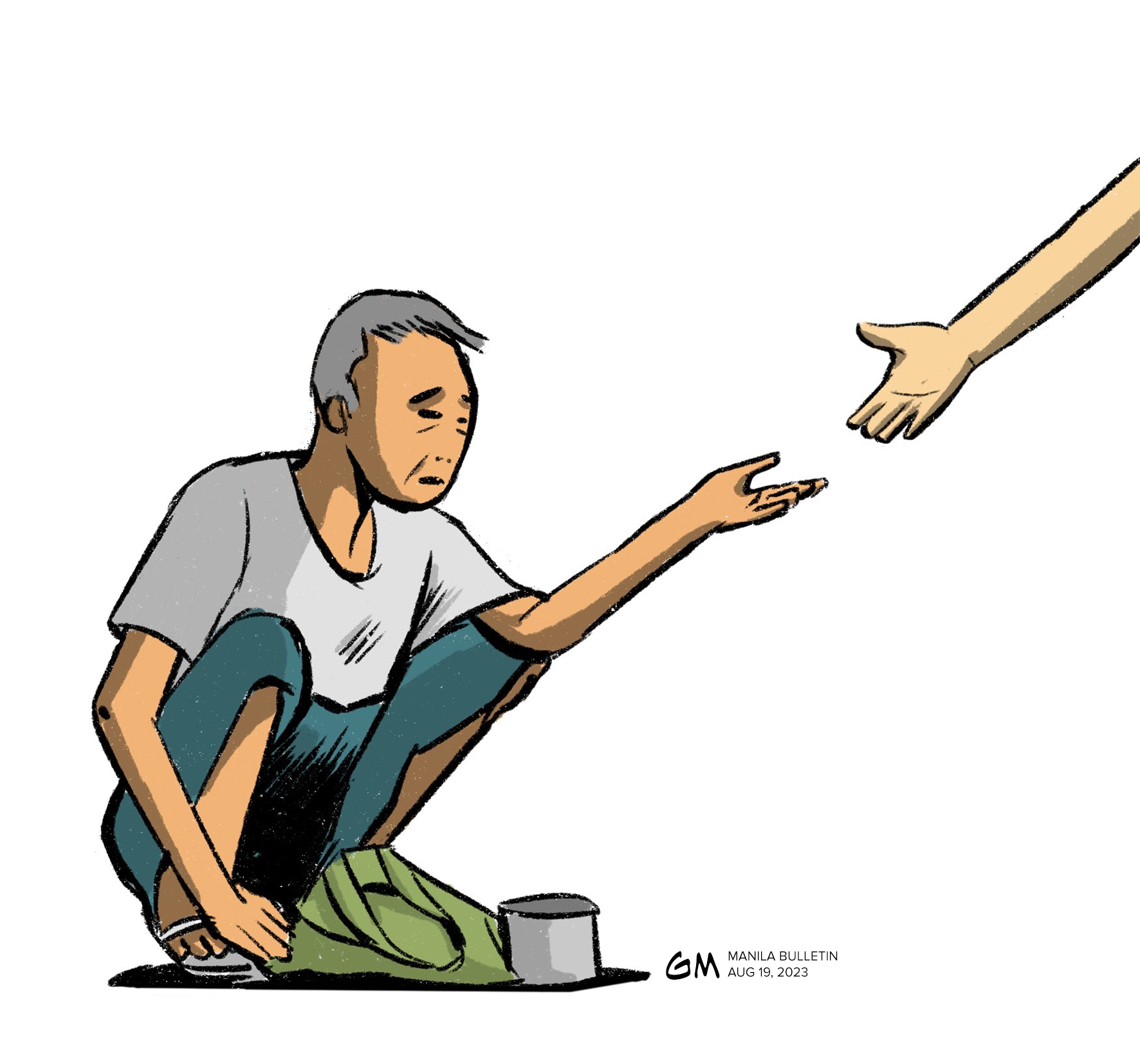
The noticeable movement of poor provincial folks to the metropolis at around Christmas time to appeal for charity and help from their better-off “kababayans” has been a practice since as far back as we can remember.
It started as a tolerable — even welcome — Yuletide scene as city folk share their blessings of food and money to other Filipinos in need. Many of these seasonal street beggars came from tribes of Indigenous Peoples (IPs) in Central and Northern Luzon, whole families trying to eke out a living asking for alms from motorists and commuters, unmindful of the physical risks. The “ber” months leading to Christmas that begin in September have become the season for this urban begging migration.
Soon, these groups became hordes of IPs and other poor people coming from as far as Mindanao, and the erstwhile isolated cases of begging became a huge enterprise, as human trafficking syndicates successfully took over the lucrative activity. Official data from DSWD investigations reveal that individual beggars earn as much as ₱5,000 a day from the public especially during Christmas time.
Last year, the Department of Social Welfare and Development (DSWD) launched a massive campaign that rescued some 200 Mindanao IPs from the clutches of criminal rings.
These victims told horrible stories of how syndicate men paid for their fare, housed them in cramped shanties in Tondo, Manila, and with an iron hand, organized their begging activities which earn them a paltry sum while the operators get the lion’s share.
It is noteworthy that this year, the DSWD had an early, pro-active approach to the problem as it convened the Inter-Agency Council Against Trafficking (IACAT) last Tuesday, Aug. 15 to intensify its street rescue efforts under the “Oplan Pag-Abot” program, an initiative that started last July.
The DSWD requested the council’s full support to strengthen the reach-out operations, particularly among indigenous peoples (IPs) roaming the streets who could be victims of human trafficking.
The measures include a rights-based approach that ensures the reach-out procedure adheres to human rights protocols. Social workers administer biometrics registration of the reached-out families and issue them identification cards as part of the program’s protocols.
“We are the ones reaching out. We put them in our facilities and then we bring them home to their respective home provinces with the needed economic support. Apart from that, whenever we get an individual in street situations, we get their biometrics and we give them their own IDs,” DSWD said.
Through reach-out operations and the provision of various interventions, the program aims to reduce the risks and vulnerabilities of children, individuals, and families living on the streets.
The DSWD initiative in controlling the street begging syndicates should not end with this program. They should also coordinate with the police in dismantling these criminal syndicates who feed on the helplessness and economic vulnerabilities of our indigenous peoples.